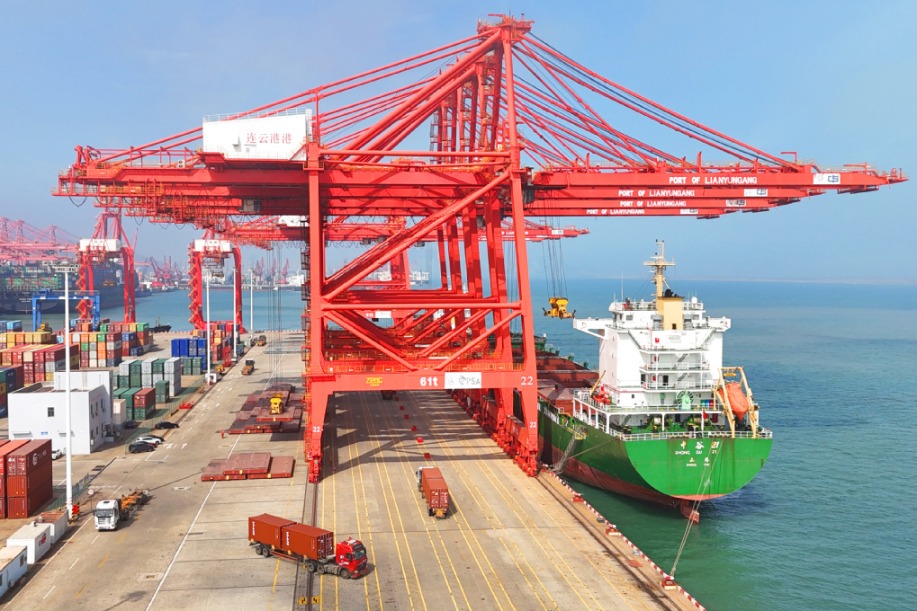Israel-Palestine conflict likely to snowball and hit global economy
By Mei Xinyu | China Daily | Updated: 2023-10-26 07:06

The Israel-Palestine conflict, which threatens to turn into a larger conflict involving multiple players, is likely to have multiple short- and medium-term effects on the global and regional economies.
Neither Israel nor Palestine is a significant oil and gas producer. Nor are their immediate neighbors — Lebanon, Syria, Jordan and Egypt — major oil and gas producers or exporters. As long as the conflict does not directly involve major oil and gas producing countries in the Gulf region, it will not affect the actual oil and gas production capacity in the region.
What affects the price of oil and gas in international markets is mainly the plans of the Organization of Petroleum Exporting Countries and other oil and gas producing economies. After its expiration at the end of this year, the plans to reduce the additional production of crude oil will continue to determine the oil and gas prices in the international markets for the next year or so. The attitude and role of Saudi Arabia in the scheme of things will, however, remain the most significant factor.
However, whether Saudi Arabia will continue to reduce its crude oil production depends to a large extent on the normalization of Riyadh-Tel Aviv relations as well as US-Saudi Arabia ties.
If the US agrees to meet key Saudi Arabian demands and continues to press Saudi Arabia to formalize relations with Israel, there is a high probability that Riyadh will agree to abandon its oil output reduction plan by the end of the year. However, with the outbreak of the Israel-Palestine conflict, the comprehensive suspension of talks on the normalization of Saudi Arabia-Israel relations is expected to last for a considerable period of time, increasing the probability of Riyadh extending the oil production reduction plan.
If oil and gas prices continue to be high in the international markets, inflation in most economies, including in the United States and European Union member states, will remain high or even increase, and their monetary policies will continue to swing between "suppressing inflation" and "stabilizing growth".
As for the US and the EU, their "re-industrialization" process might be blocked, with the cost of investment in capital-intensive industries, such as chips and electric vehicles manufacturing, continuing to increase due to high interest rates and labor costs. The debt servicing cost might also increase due to the high interest rates.
The high oil prices and interest rates in the international market will inflict more pain on non-oil-producing countries. Yet the US dollar will remain strong against non-oil-producing economies' currencies, with the high interest rates causing their currencies to remain weak against the US dollar, or even depreciate significantly.
Consequently, the prices of their imported goods and services denominated in the US dollar will rise more sharply after being translated into local currencies, and the inflationary pressure on them will be far greater than that on the US or European countries. Also, the pressure of cross-border capital flight will remain high.
Due to extreme weather events, the yield in major grain producing areas in East Asia may be less than usual, and the autumn grain harvest in China may not be as good as expected. This will cause grain prices to rise further in international markets, and inflationary pressure to increase in several countries.
As the world's largest manufacturing country, China still faces relatively low inflation pressure, but against the backdrop of soaring oil prices and huge external inflationary pressure, China will gradually feel the pressure of imported inflation, especially in the first and second quarters of next year. Continuing to import oil and gas from Russia, Iran and other US-sanctioned countries at prices lower than in the global market can only help ease the imported inflationary pressure. This will further shrink the space for China to stabilize growth by easing its monetary policy.
Furthermore, if the US' interest rates continue to be high, due to high external inflation pressure, the pressure on the yuan's exchange rate and China's stock market will be difficult to ease.
And given the continuous pressure of capital flight, China, which is struggling to develop its high-tech industries after the US imposed restrictions on the exports of high-tech products, especially semiconductors to China, should take measures to prevent the flight of capital in bulk.
The author is a researcher at the Chinese Academy of International Trade and Economic Cooperation. The views don't necessarily reflect those of China Daily.
If you have a specific expertise, or would like to share your thought about our stories, then send us your writings at opinion@chinadaily.com.cn or comment@chinadaily.com.cn.
























